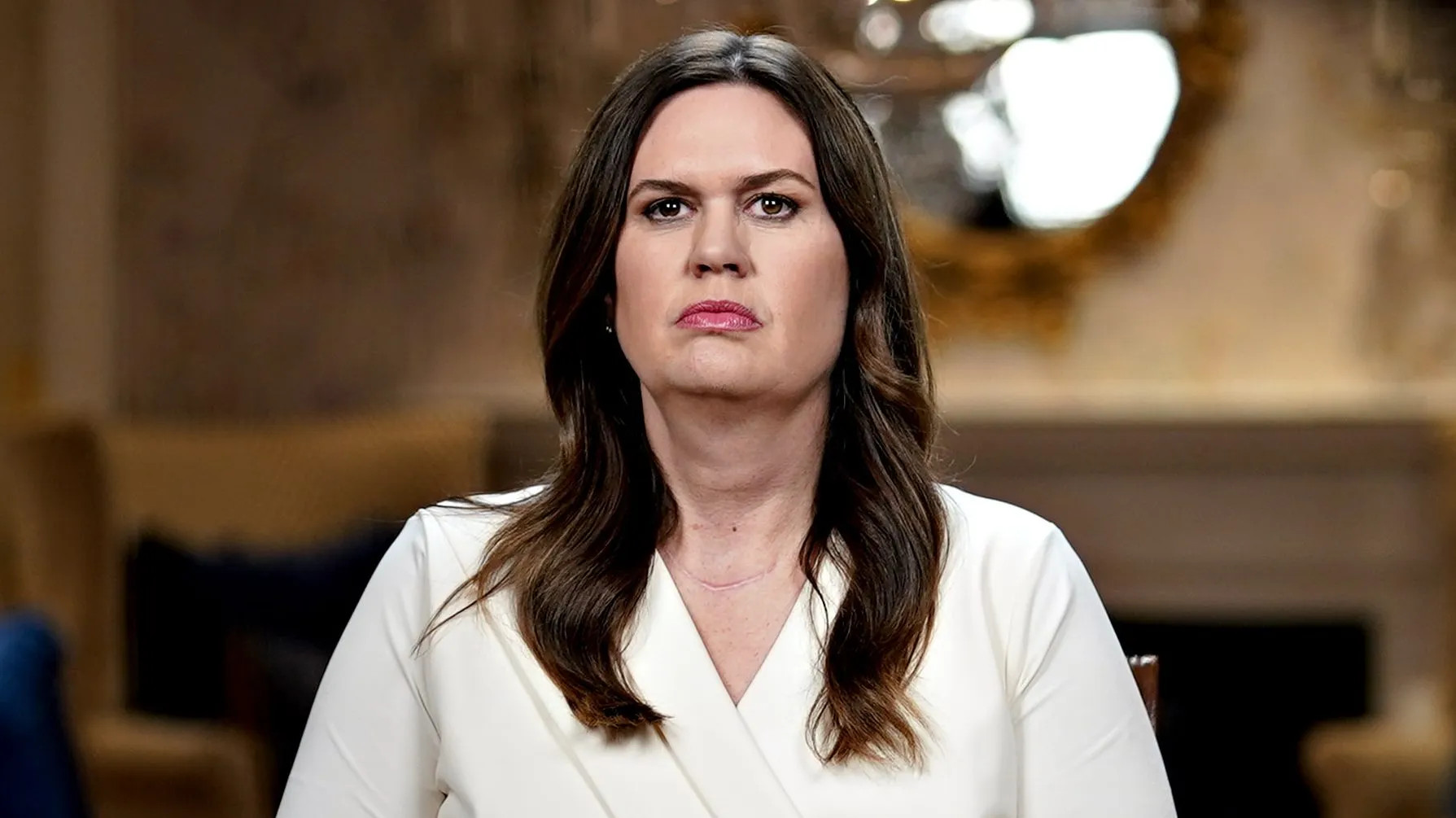During a campaign rally for former President Donald Trump, Arkansas Gov. Sarah Huckabee Sanders took aim at Vice President Kamala Harris' family life, suggesting that the presidential candidate lacks humility because she doesn't have biological children. This comment, made during a town hall in Flint, Michigan, ignited controversy and sparked a debate about the role of family in politics.
Huckabee Sanders, known for her bold claims and embrace of 'culture war' issues, began her remarks by joking about how her own children keep her grounded despite her high-profile position. She told the crowd, "You can walk into a room like this where people cheer when you step onto the stage and you might think for a second that you’re kind of special. Then you go home, and your kids remind you very quickly you’re actually not that big of a deal." This was a setup for her subsequent comment on Harris, which she delivered after a pause and with a hint of sarcasm.
"So, my kids keep me humble,” she said to the crowd, pausing for a few seconds. “Unfortunately, Kamala Harris doesn’t have anything keeping her humble.”
Harris, the stepmother of two adult children, Cole and Ella Emhoff, from her husband's previous marriage, has often spoken about her role as a stepmom or, using her nickname, “Momala.” She and her husband, Second Gentleman Doug Emhoff, have repeatedly emphasized the importance of family and their commitment to making the world a better place.
Kerstin Emhoff, the ex-wife of Doug Emhoff, voiced her support for Harris and her role as stepmother, calling her a "wonderful stepmom" who has been a "positive influence" in her children's lives. She also criticized Sanders’ comments on Twitter, writing, "Kamala Harris has spent her entire career working for the people, ALL families. That keeps you pretty humble." The crowd's reaction to Sanders' remark was a mix of laughter, applause, and some boos, highlighting the diverse opinions on the topic.
Family Life as a Political Issue
The controversy surrounding Huckabee Sanders' comments is a symptom of a broader trend of family life becoming a partisan issue in recent political discourse. This trend was further fueled by remarks made by Sen. JD Vance, Trump's running mate, who in a 2021 interview resurfaced during the current election cycle, suggested that voters without biological children should face a higher tax rate. Vance also took aim at Harris, labeling her and other childless Democrats as "childless cat ladies" who are "miserable at their own lives and the choices that they’ve made." He claimed that this group seeks to "make the rest of the country miserable too.” These remarks have drawn condemnation from both sides of the aisle, with many viewing them as misogynistic and insensitive.
The focus on family life has also spilled over into the realm of pop culture. When Taylor Swift endorsed Harris earlier this month, she signed her endorsement with “Taylor Swift, Childless Cat Lady,” seemingly referencing Vance's criticism of Harris and implicitly condemning his sexist remarks.
Analyzing the Political Context
The debate surrounding family life in politics is not a new one, but the rhetoric surrounding the issue has become increasingly heated in recent years. Some argue that the focus on family life, particularly biological children, is a distraction from more important issues facing the country. Others see it as a reflection of the growing importance of values and identity politics in American elections. It remains to be seen whether this trend will continue in future elections.
The Impact on the Campaign
Sanders' comments have been met with mixed reactions from the Trump campaign. While some, like senior campaign adviser Bryan Lanza, have criticized Sanders' comments, others have defended them, viewing them as a reflection of the candidate's values. Lanza, during a CNN panel shortly after the town hall, expressed his disappointment in Sanders' remarks, stating, “I found that comment to be actually offensive. I don’t know what more to say about that,” Lanza said. “I’m disappointed in Sarah saying that. I’m sure I’m going to get criticism from the campaign, but I have to sort of defend somebody who’s a stepmom. It’s a tough job. People step into that role.”
The Trump campaign's approach to Sanders' comments reflects a broader trend in the party's handling of controversial statements. The party has often faced criticism for not adequately addressing offensive or divisive remarks made by its members. This has led to accusations of hypocrisy and double standards. However, the party has also been criticized for overreacting to such statements, further fueling the polarization of the political landscape.
An Examination of the Broader Trends
The focus on family life and the related 'culture war' issues is not limited to the Trump campaign. These issues have become central to the political landscape, influencing policy debates and shaping the national conversation. Examples of this trend can be seen in the debates over abortion rights, gender identity, and education. The intensity of these debates reflects the growing polarization of American society and the difficulty of finding common ground on these complex and often deeply personal issues.
Looking Ahead
It is unclear how Sanders' comments will impact the 2024 election, but they have certainly brought the issue of family life into the spotlight. The debate over the role of family in politics is likely to continue, potentially shaping the conversation around future elections. It remains to be seen whether voters will be swayed by candidates' personal lives or by their policies and stances on key issues facing the nation.
In a nation increasingly defined by its divisions, the debate over family life in politics underscores the complexities of navigating a diverse and dynamic political landscape. It is a debate that reflects not just the changing demographics of the country but also the evolving values and beliefs of its citizens. As the 2024 election unfolds, it is likely that the issue of family life will remain at the forefront of political discourse, testing the boundaries of what is considered acceptable and highlighting the ongoing struggle to find common ground in a deeply divided society. The question remains whether the focus on personal lives will distract from the more pressing issues facing the nation or whether it will serve as a catalyst for a more nuanced and meaningful dialogue about the role of family in American society.

















